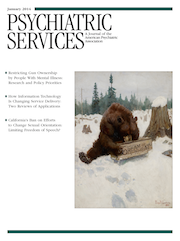Fante: A Memoir: A Family Legacy of Writing, Drinking and Surviving
First-person narratives by William Styron, Andrew Sullivan, Kay Redfield Jamison, and Elyn Saks have helped many people (including mental health professionals) better relate to the lived experience of mental illness. Although these books invariably contain memorable passages describing the extreme and dramatic nature of these disorders, their ultimate triumph lies in those moments when the reader can relate to the authors and their attempts to overcome the challenges of these disorders. Eliciting empathy, these books help readers overcome the urge to distance themselves from the experience of living with mental illness.
Dan Fante’s memoir relating his own struggles with alcohol dependence and its relationship with his father’s and grandfather’s alcohol dependence differs greatly from that tradition. The author’s goal is not to help the reader empathize with the experience of alcoholism but rather to capture the pain and adrenaline that went along with the illness. Fante appears to be so resistant to making any excuses for any of his prior bad behavior that readers may have trouble identifying with his choices. Both he and his father come across as entertaining but not terribly kind or decent people. Instead we are treated to an engaging ride through an often self-destructive life. Fante revels in a cinematic outlandishness of his and his family’s experience. He offers vivid and engaging snapshots of the film industry in Los Angeles, where his father worked as a screenwriter, and of poverty and crime in New York City, where Fante began his own career as a professional writer while making money in a variety of legal and illegal ways. The net effect presents a cautionary tale showing the debilitating and degrading results of addiction.



